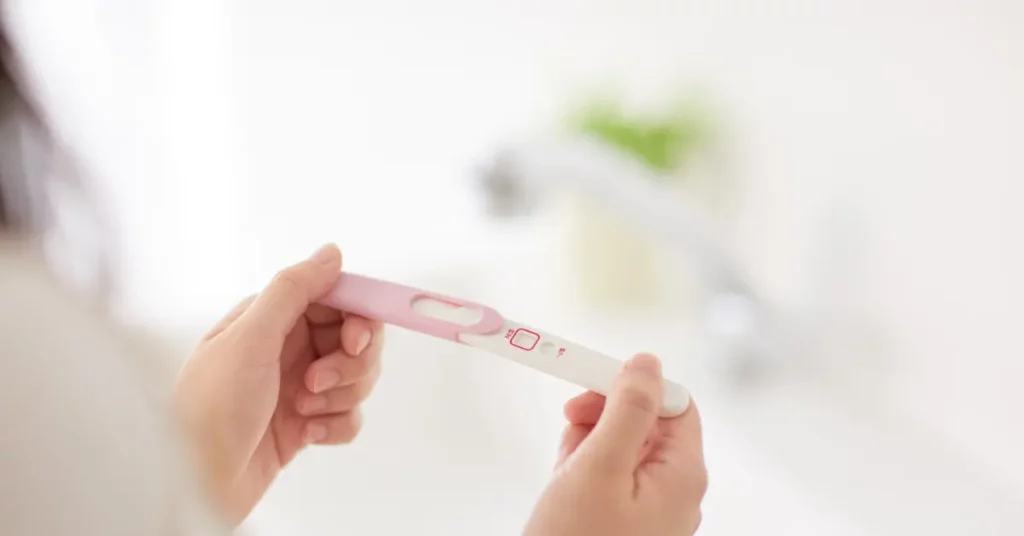Fertility wellness is an approach that emphasizes overall health and lifestyle as part of reproductive care. Many couples focus on boosting fertility naturally before or alongside medical interventions. This means optimizing nutrition, managing stress, and addressing body weight or habits. These natural ways to increase fertility, from a balanced diet to regular exercise, aim to give a lasting boost by creating the healthiest environment for conception.

Nutrition and Fertility
Diet is a cornerstone of fertility wellness, so working with a fertility nutritionist to create a tailored fertility meal plan can be very helpful. A nutrient-rich diet provides vitamins and antioxidants that support egg and sperm health. Diets high in trans fats, refined carbs, and sugars can impair fertility.
- Berries And Antioxidant Power: Compounds like anthocyanins, ellagic acid, and vitamin C work to neutralize free radicals, protecting reproductive cells from oxidative stress. This protection is vital because oxidative damage can impair egg quality in women and reduce sperm motility and DNA integrity in men. Blueberries, raspberries, and strawberries are particularly rich in polyphenols, which support blood vessel health and improve circulation, important factors for reproductive organs. Vitamin C also plays a role in collagen synthesis, contributing to healthy cervical mucus that can support sperm transport. Eating a colorful variety of berries ensures a broad range of protective phytonutrients, each offering unique benefits. Their low glycemic index makes them an excellent choice for maintaining steady blood sugar levels, which in turn supports hormonal balance. Berries are versatile and can be incorporated into smoothies, salads, or snacks, making it easy to include them consistently in a fertility-focused diet. By regularly consuming these fruits, individuals not only nourish their reproductive health but also strengthen their overall immune function, creating a more favorable environment for conception.
- Lean protein sources are essential for building and repairing tissues, including those involved in reproduction. Opt for options such as chicken, fish, legumes, and tofu. These provide the necessary amino acids without excessive saturated fats. Adequate protein intake supports hormone production and the development of healthy reproductive cells, contributing significantly to improved fertility wellness.
- Whole Grains: Whole grains like oats, quinoa, and brown rice are nutrient-dense foods that provide steady energy while also offering essential vitamins and minerals. Unlike refined grains, they retain their fiber-rich bran and nutrient-packed germ, which are crucial for maintaining blood sugar stability. Balanced glucose levels help regulate insulin, a hormone directly tied to reproductive function. Unstable blood sugar can disrupt ovulation in women and contribute to metabolic conditions such as insulin resistance, which negatively impacts fertility. Whole grains are also excellent sources of B vitamins, including folate and B6, which play critical roles in DNA synthesis and hormone regulation. Folate, in particular, supports early fetal development, making it an essential nutrient for women trying to conceive. Also, the fiber in whole grains aids in digestion and promotes detoxification by helping the body eliminate excess hormones and toxins. Improved gut health from regular fiber intake further enhances nutrient absorption, indirectly benefiting reproductive processes. Quinoa provides a complete protein in addition to being gluten-free, making it ideal for those with dietary sensitivities.
- Healthy Fats: Sources like avocados, nuts, seeds, and olive oil provide monounsaturated and polyunsaturated fats that fuel the endocrine system. Omega-3 fatty acids, found in chia seeds, walnuts, and fatty fish, are particularly important for reducing systemic inflammation, which can otherwise disrupt ovulation and sperm function. These fats also contribute to the fluidity and structural strength of cell membranes, ensuring that eggs and sperm remain viable and capable of successful fertilization. In women, omega-3s support the production of progesterone, a hormone critical for preparing the uterine lining for implantation. In men, they improve sperm morphology and motility, key factors in reproductive success. Additionally, healthy fats aid in the absorption of fat-soluble vitamins A, D, E, and K, which all play roles in fertility and overall health.
For women over 40 who are concerned about their egg health, some experts suggest improving egg quality after 40 naturally through diet and supplements, and ensuring adequate folate and antioxidants. Strong fertility and nutrition go hand-in-hand: a fertility-focused diet plan can support reproductive hormones and even egg quality.
Healthy Lifestyle Habits
Beyond diet, modifiable lifestyle factors have a major influence on fertility. Maintaining a healthy weight, exercising moderately, and avoiding tobacco and excessive alcohol are all key natural ways to increase fertility. Regular moderate exercise can improve insulin sensitivity and hormone balance, whereas extreme workouts or obesity may disrupt menstrual cycles. Smoking and heavy alcohol use are well-known to reduce fertility in both partners. Such lifestyle behaviors play important roles in conception. Modifiable factors, such as diet, age at first pregnancy, smoking, and alcohol use, significantly affect fertility and infertility in women. Adopting healthy habits is central to boosting fertility naturally and creates a foundation for successful treatment. Small changes can give a real fertility boost by improving ovulation and semen quality.
Stress Management and Complementary Therapies
Chronic stress can also affect fertility, so managing it is an important part of wellness. High stress levels may disrupt hormonal balance and menstrual cycles, and stress may contribute to infertility if unaddressed. Doctors often encourage stress-reducing strategies as part of treatment preparation. Alternative fertility treatments that focus on mind-body health are commonly suggested:
- Acupuncture: Acupuncture has gained recognition in fertility care due to its potential benefits in improving reproductive outcomes, particularly in assisted reproductive technologies like IVF. By stimulating specific points along energy pathways, acupuncture is believed to enhance blood circulation to the uterus and ovaries, thereby improving the environment for embryo implantation. Acupuncture helps regulate the hypothalamic-pituitary-ovarian axis, which governs hormone release and ovulation. It may also reduce levels of stress hormones, creating a more balanced hormonal state overall. Beyond its physiological effects, acupuncture offers a calming experience, enabling patients to feel more at ease throughout their treatment cycles. Sessions are typically individualized, addressing not only fertility concerns but also sleep disturbances, digestive health, or anxiety that can indirectly affect reproductive health. While it is not a guaranteed solution, its role as an adjunct therapy is increasingly supported by both clinical studies and patient experiences. Many find it empowering to participate in a therapy that bridges ancient practice with modern medical care, making it a valuable addition to holistic fertility planning.
- Yoga and Meditation: The physical practice of yoga helps release tension from the body, improves flexibility, and enhances circulation, which can all contribute to better reproductive health. Certain yoga poses are believed to support pelvic blood flow and balance the endocrine system, although the greatest benefit often comes from the reduction of stress hormones. Meditation works in tandem with yoga by calming the mind, fostering mindfulness, and promoting a sense of groundedness during a time that can otherwise feel uncertain. Such practices encourage deep breathing and relaxation, which directly influence the parasympathetic nervous system, shifting the body out of a constant “fight or flight” mode and into a state that is more conducive to conception.
- Massage and Counseling: Massage therapy helps improve circulation, reduce muscle tension, and encourage relaxation, all of which can create favorable conditions for conception. It can also stimulate the lymphatic system, aiding in detoxification and improving overall health. Specialized fertility massage techniques concentrate on the abdominal and pelvic regions, promoting uterine alignment and improving blood flow to the reproductive organs. These physical benefits are accompanied by a deep sense of calm, which can counteract the anxiety and physical strain associated with fertility procedures.
- Relaxation Techniques: Methods such as deep breathing, guided imagery, and mindfulness meditation are simple yet powerful practices that can be incorporated into daily routines without significant cost or time commitment. Deep breathing exercises help regulate heart rate, lower blood pressure, and signal the body to exit stress mode, which is crucial for reproductive hormone balance. Guided imagery involves visualizing calming scenarios or positive outcomes, which can reduce anxiety and foster optimism during fertility treatment. Mindfulness, the practice of focusing on the present moment without judgment, has been shown to reduce rumination and enhance emotional well-being.
- Social and Emotional Support: Infertility can be an isolating experience, leaving individuals or couples feeling disconnected from friends and family who may not fully understand the challenges involved. Participating in therapy, whether individual or group-based, provides a safe outlet to share emotions and receive validation. Support groups create a sense of community by bringing together people experiencing similar struggles, reducing feelings of loneliness, and fostering hope.
Adopting these stress-relief methods provides balance and resilience, serving as additional ways to nurture fertility alongside medical care.

Preconception Evaluation and Treatment Prep
A female fertility exam is a standard first step before treatment. Guidelines advise that women under 35 who have tried to conceive for 12 months should begin a fertility evaluation. This exam typically includes a detailed medical history, pelvic ultrasound, and hormone tests to assess ovarian reserve and reproductive anatomy. The male partner is usually tested too. During this fertility treatment prep phase, doctors also address health optimization. The goal is to enter fertility treatment in the best possible health. For instance, managing conditions like thyroid disease or diabetes, achieving a healthy BMI, and treating infections can improve outcomes.
Medical Fertility Treatments
When lifestyle changes and evaluation are complete, couples may pursue fertility treatments. There are various types of fertility treatments available. Some treatments aim to restore natural fertility. For example, medications like clomiphene citrate or letrozole induce ovulation in women who do not ovulate regularly. Other treatments assist conception directly. Intrauterine insemination (IUI) places sperm into the uterus during ovulation, while assisted reproductive technologies (ART), like in vitro fertilization (IVF), join eggs and sperm outside the body. Infertility care often uses a dual approach, as treatments can either attempt to restore fertility through medication or surgery, or help you get pregnant with sophisticated techniques.
Typical steps include using hormones to stimulate the ovaries, retrieving eggs, fertilizing eggs in the lab, and transferring embryos back into the uterus. Other advanced options include intracytoplasmic sperm injection (ICSI), donor eggs or sperm, and gestational surrogacy when needed. When choosing among IVF treatment options, couples consider factors like the female’s age and ovarian reserve. Each couple’s plan is customized. A younger woman with good eggs might start with simple ovulation induction or IUI. In comparison, an older woman or one with previous failed cycles might go straight to IVF or use donor eggs.

IVF Cycles and Advanced Reproductive Services
When IVF is undertaken, there are many ways to support an IVF cycle through lifestyle. Patients often begin with a brief preparation period. Focus on healthy, balanced meals and avoiding drastic dieting or detoxes right before a cycle. Continuing moderate exercise is also advised, as is avoiding environmental toxins or endocrine disruptors. As mentioned previously, good sleep and stress management remain important during an IVF cycle. In addition, start prenatal vitamins (to boost folate levels) at least a month before IVF, and review any medications with the doctor to avoid interactions. These fertility treatment prep steps help ensure the uterus and eggs are as receptive as possible.
For couples proceeding with IVF or other ART, choosing a specialized clinic with comprehensive care is crucial. The IVF Center Hawaii is known as one of the best IVF treatment centers; it offers advanced IVF treatment services such as preimplantation genetic testing, personalized embryo transfer protocols, and integrative support. These advanced services, along with a strong success record, exemplify how clinics combine cutting-edge technology with patient-centered care. Combining medical advances with healthy habits gives couples the best odds. A holistic approach is truly the backbone of ways to support an IVF cycle, and helps turn the hope of fertility treatment into a healthy pregnancy.
Fertility wellness means using all available tools in concert. Regular health evaluations and smart preparation further strengthen each step of the journey. Whether one is pursuing IUI, IVF, or other treatments, focusing on whole-body health provides a solid foundation. Comprehensive wellness strategies provide each couple with the greatest chance of success, making the fertility process smoother, healthier, and more positive.
Sources:
- Skoracka, K. et al., Female Fertility and the Nutritional Approach: The Most Essential Aspects, Advances in Nutrition (2021) pubmed.ncbi.nlm.nih.gov.
- Mayo Clinic, Female infertility: Diagnosis & treatment mayoclinic.org.
- Healthline, Guide to IVF Success: Lifestyle, Medications, and More (updated July 2025) healthline.com.
